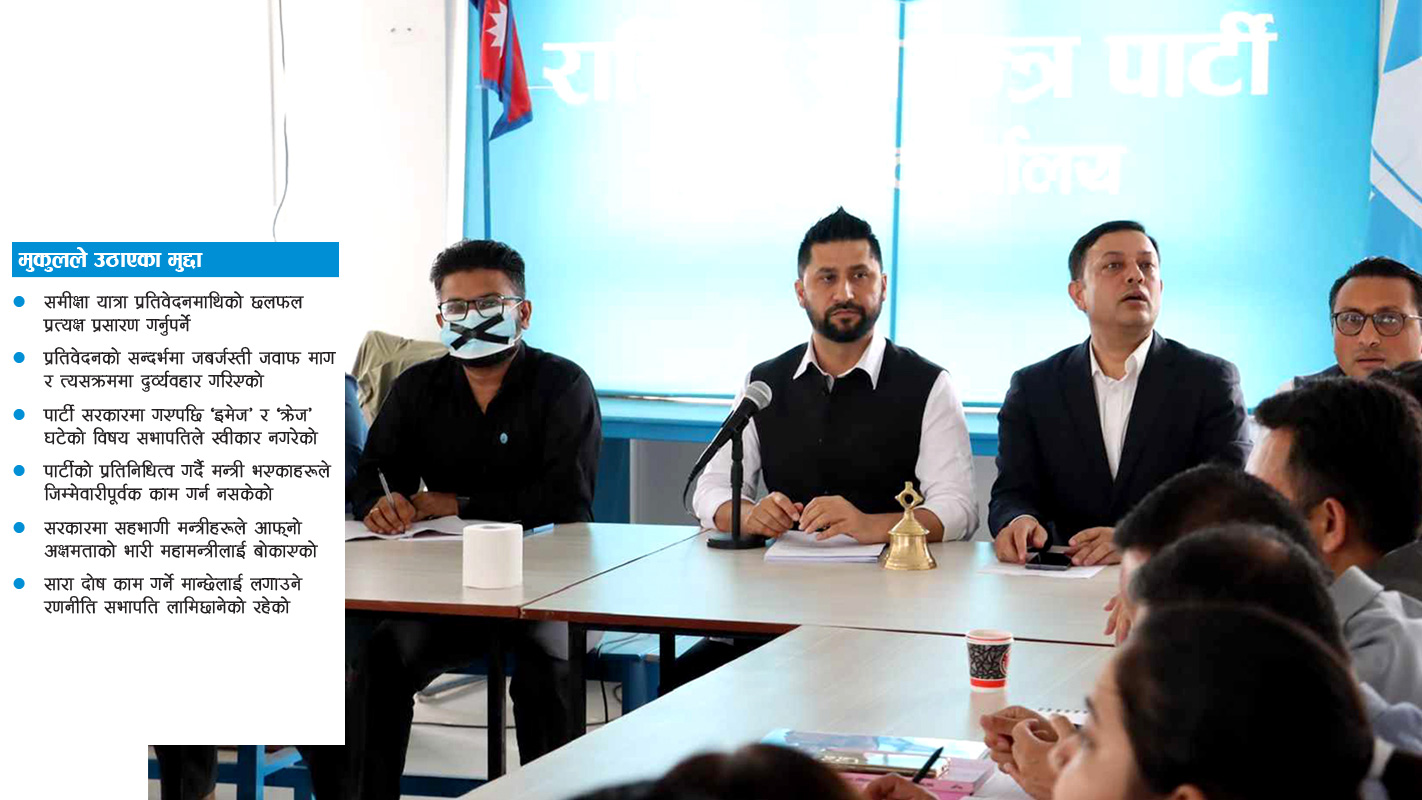Foreign exchange reserves hit record high for 11 months
We use Google Cloud Translation Services. Google requires we provide the following disclaimer relating to use of this service:
This service may contain translations powered by Google. Google disclaims all warranties related to the translations, expressed or implied, including any warranties of accuracy, reliability, and any implied warranties of merchantability, fitness for a particular purpose, and noninfringement.


For the last 11 months, the country's foreign currency (exchange) reserves have been continuously making new records. Remittances are continuously increasing, the tourism sector is getting tighter, imports are continuously decreasing, etc., and so on, foreign exchange reserves are constantly making new records during that period.



About 25 months ago, the condition of foreign exchange reserves was critical. In the financial year 079/79, the reserve was reduced to 11 trillion 46 billion (9 billion 25 million US dollars). After the continuous decrease in reserves, the government imposed a ban on the import of 10 types of goods, while the National Bank also arranged for a cash margin to be kept when opening bonds.
Policymakers were spreading fears that the country would become Sri Lanka as foreign exchange reserves dwindled. For this reason, the government adopted a strict policy to reduce imports. Due to the government's decision, there was a decrease in imports and economic activity slowed down. However, foreign exchange reserves, which are of interest to the government, began to improve.
Now the situation has changed. There is no situation in which the foreign exchange reserves are under pressure if there is more foreign exchange going out of the country due to more imports or any other reason. According to Rashtra Bank, a new record has been set for the 11th time after reaching 19 trillion 42 billion 40 crore rupees by last May. Thus, the monthly report of Nepal Rastra Bank has shown that the main reason for setting a new record in foreign exchange every month is the continuous increase in remittance inflow.
Currencies of countries other than Nepal are foreign currencies for Nepal. It is also known as foreign exchange. Exports, tourism, remittances, foreign aid and subsidies, foreign loans are the main sources of foreign earnings. Although there have been signs of general improvement in tourism in recent months, the situation of exports and foreign aid and subsidies is very critical. But for the last one and a half years, more than one billion remittances have been coming into Nepal every month. On a monthly basis, out of the 10 months of the current financial year, the highest amount of 1 trillion 37 billion rupees was received in last October and the lowest was 1 trillion 5 billion rupees in last January. According to this, remittances of 1 trillion 16 billion rupees have been received in last Baisakh.
Although there was a decrease in remittances in Baisakh compared to the previous month (last March), remittances increased by 23.4 percent this year compared to 10 months of last year. In this way, the inflow of remittances is continuously increasing and due to the improvements in tourism and other sectors, foreign exchange reserves are making new records every month. According to Rashtra Bank, 11 trillion 98 billion 600 million remittances have been received in 10 months of the current financial year. This is an increase of 19.2 percent compared to last year. Remittances in US dollars increased by 17.1 percent to 9.2 billion.
A country with high foreign exchange reserves is seen as a strong economy. When we import goods and services from other countries, we have to pay in foreign currency. Foreign exchange is needed not only to repatriate foreign investment but also to repatriate dividends from the investment. This also confirms the importance of foreign exchange reserves for the country. But experts say that the foreign currency reserves here are accumulating due to external reasons rather than Nepal's policy, so it is not necessary to be happy about it. Foreign exchange reserves are at an all-time high.
Foreign loans and aid and grants are falling far short of targets. Now only 15 months are left for the end of the financial year. By the end of the financial year, foreign loans and foreign aid will not even reach 50 percent of the target. Unable to raise external resources, the government turned its attention to internal debt. Experts say that even now the government's funds have become negative.
According to the Rashtra Bank, the foreign exchange reserves in US dollars reached 14 billion 54 million till last April. Compared to last June, it has increased by 24.2 percent. At the end of June 2008, this reserve was 11 billion 710 million dollars. Based on the import of 10 months of the current fiscal year, the foreign exchange reserves of the banking sector will be enough to cover 15.1 months of import of goods and 12.6 months of import of goods and services, according to the Rastra Bank. .
081 The foreign exchange reserve in the country is 34 percent of the gross domestic product (GDP) ratio at the end of May. In the current fiscal year, the National Bank had set a target of maintaining foreign exchange reserves sufficient to cover at least 7 months of imports. Prakash Kumar Shrestha, head of research department of Nepal Rastra Bank, said that due to the government's policy of encouraging foreign employment, remittances have increased and foreign exchange reserves have increased as a positive effect.
It can be argued about whether it is right/wrong for the government to encourage foreign employment without creating jobs in the country, and how it will affect it in the long run. But due to the government's policy, remittances have increased and the external sector is becoming stronger," he said. Now it has also come that the government does not have financial 'space'.
In such a situation, the government can make a new policy arrangement to raise resources by directly issuing bonds to public institutions such as electricity authority, telecom, oil corporation, etc. "Resources can be raised for hydropower projects by forcing the private sector to issue energy bonds," he added. When this happens, the debt of the government does not increase. If the country's capital is mobilised, there will be no shortage of capital for infrastructure development.
According to the monthly report of the National Bank, while remittances are continuously increasing, the current account balance and current account are constantly in surplus, and the interest rate is decreasing. But looking at the government finances, the capital expenditure has not increased as expected, the situation of revenue collection is critical. Revenue collection barely covers current expenses. As the external sector of the economy is becoming strong, experts say that even though the government has been given enough opportunities to spend on infrastructure development, the domestic economy has not been able to improve due to the inability to spend.
 प्रकाशित : असार १६, २०८१ ०७:०९
प्रकाशित : असार १६, २०८१ ०७:०९
 २३.१२°C काठमाडौं
२३.१२°C काठमाडौं


















